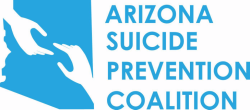Means Restriction
Means restriction is a suicide prevention strategy aimed at limiting access to lethal means for individuals at risk of self-harm or suicide. This approach encompasses both governmental measures, such as installing barriers on bridges, and personal actions, like reducing access to lethal medications and ensuring safe storage of firearms. By restricting access to these means, it becomes more challenging for someone in crisis to carry out a suicide attempt, providing them with time to reconsider or seek help. Means restriction is a vital component of comprehensive suicide prevention efforts.
Here are some examples of means restriction strategies:
Here are some examples of means restriction strategies:
- Safe Storage of Firearms: Encouraging gun owners to securely store firearms in a gun safe to reduce the risk of impulsive firearm suicides. Regularly changing safe combinations and key locations is also crucial for maintaining security and safety.
- Reducing Access to Medications: Limiting the quantity of prescription medications dispensed at one time to lower the risk of overdose.
- Bridge Barriers: Installing physical barriers or safety nets on bridges to prevent suicide attempts.
- Restricting Access to Lethal Chemicals: Implementing regulations on the sale and access to potentially lethal chemicals, such as pesticides.
- Means Counseling: Healthcare providers discussing means restriction with patients at risk of self-harm or suicide and offering guidance on reducing access to lethal means.
For additional information, including access to the CALM (Counseling on Access to Lethal Means) course, please see the links below.
Save.Org
The Action Alliance
Zero Suicide CALM Course
Save.Org
The Action Alliance
Zero Suicide CALM Course
